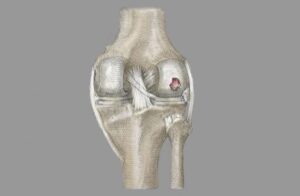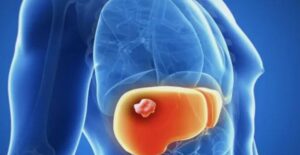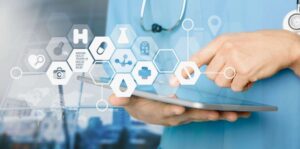The healthcare sector is continuously evolving, propelled by technological advancements, changing demographics, and the ever-growing demand for quality patient care. However, alongside these advancements come significant healthcare challenges, ranging from access to healthcare services, rising costs, to the need for more personalized treatment options. To address these healthcare challenges, innovative solutions are being developed and implemented across various facets of the healthcare industry. From telemedicine and artificial intelligence (AI) to precision medicine and wearable devices, these solutions are revolutionizing healthcare delivery, improving patient outcomes, and reshaping the future of medicine.
Telemedicine: Bridging Gaps in Access to Healthcare
One of the most impactful innovations in healthcare is telemedicine, which leverages telecommunications technology to provide remote clinical services to patients. Telemedicine addresses the challenge of accessibility by breaking down geographical barriers and enabling patients to consult with healthcare professionals regardless of their location. This is particularly beneficial for individuals in rural or underserved areas who may have limited access to healthcare facilities.
Through telemedicine platforms, patients can schedule virtual appointments with doctors, specialists, and mental health professionals, receiving timely medical advice and prescriptions without the need for in-person visits. Furthermore, telemedicine facilitates remote monitoring of patients with chronic conditions, allowing healthcare providers to track vital signs, medication adherence, and disease progression in real-time. This proactive approach to care management not only improves patient outcomes but also reduces the burden on healthcare systems by minimizing hospital readmissions and emergency room visits.
Artificial Intelligence: Enhancing Diagnostics and Treatment
Artificial intelligence (AI) is revolutionizing healthcare by augmenting diagnostic capabilities, optimizing treatment plans, and streamlining administrative tasks. Machine learning algorithms can analyze vast amounts of medical data, including imaging scans, genetic profiles, and electronic health records, to identify patterns and correlations that human clinicians may overlook. This enables more accurate and timely diagnosis, leading to improved patient care and outcomes.
In addition to diagnostics, AI-powered tools are transforming treatment protocols by personalizing therapies based on individual patient characteristics and disease profiles. For example, precision oncology uses AI algorithms to analyze tumor genetics and identify targeted therapies that are most likely to be effective for specific cancer types. By tailoring treatment plans to each patient’s unique genetic makeup, physicians can optimize efficacy while minimizing adverse effects, offering new hope to individuals battling cancer and other complex diseases.
Furthermore, AI-driven predictive analytics are helping healthcare organizations forecast patient demand, optimize resource allocation, and improve operational efficiency. By analyzing historical data and predicting future trends, hospitals and clinics can better anticipate patient needs, reduce wait times, and enhance overall service quality.
Precision Medicine: Customizing Healthcare for Individuals
Precision medicine represents a paradigm shift in healthcare, moving away from a one-size-fits-all approach to a more personalized model tailored to each patient’s genetic makeup, lifestyle factors, and environmental influences. By integrating genomics, proteomics, and other -omics data, precision medicine aims to optimize treatment outcomes and minimize adverse effects by targeting interventions to the individual characteristics of each patient.
One of the key applications of precision medicine is in the field of pharmacogenomics, which examines how an individual’s genetic variations influence their response to medications. By identifying genetic markers associated with drug metabolism and efficacy, physicians can prescribe medications that are most likely to be effective for a particular patient while avoiding those that may cause adverse reactions. This not only improves patient safety but also enhances treatment adherence and reduces healthcare costs associated with trial-and-error prescribing.
Moreover, precision medicine holds promise for the early detection and prevention of disease by identifying individuals at high risk based on their genetic predisposition and implementing targeted interventions to mitigate that risk. For example, genetic testing can identify individuals with hereditary predispositions to certain cancers, allowing for enhanced surveillance and preventive measures such as increased screening or prophylactic surgeries.
Wearable Devices and Remote Monitoring: Empowering Patients in Self-care
The proliferation of wearable devices, such as smartwatches, fitness trackers, and continuous glucose monitors, is empowering individuals to take control of their health through real-time monitoring and feedback. These devices collect data on various physiological parameters, including heart rate, activity levels, blood glucose, and sleep patterns, providing users with insights into their health status and behaviors.
By integrating wearable data with mobile apps and cloud-based platforms, patients can track their progress, set health goals, and receive personalized recommendations for lifestyle modifications. This promotes proactive self-management of chronic conditions, such as diabetes, hypertension, and obesity, reducing the need for frequent clinic visits and hospitalizations.
Furthermore, wearable devices enable remote monitoring of patients recovering from surgeries or managing chronic diseases, allowing healthcare providers to intervene promptly in case of any deviations from the normal range. This continuous monitoring facilitates early detection of complications, reduces the risk of adverse events, and enhances patient safety and satisfaction.
Also Read:
- How Technology is Transforming Medical Billing Services
- Benefits & Challenges of Telemedicine: Physician Guide
- Benefits of AI for Physicians and Patients?
Conclusion
Innovative solutions are driving transformational changes in healthcare, addressing long standing healthcare challenges and ushering in a new era of patient-centered, data-driven medicine. From telemedicine and artificial intelligence to precision medicine and wearable devices, these technologies are revolutionizing healthcare delivery, improving patient outcomes, and empowering individuals to take an active role in their own health and well-being.
As we embrace these innovations and continue to push the boundaries of medical science and technology, it is essential to ensure equitable access to these advancements and prioritize patient privacy and data security. By harnessing the power of innovation and collaboration, we can build a healthcare system that is more efficient, effective, and responsive to the evolving needs of patients and communities around the world.









